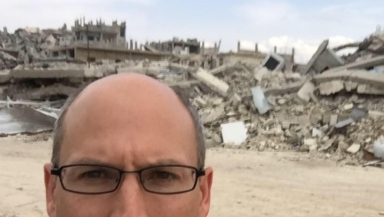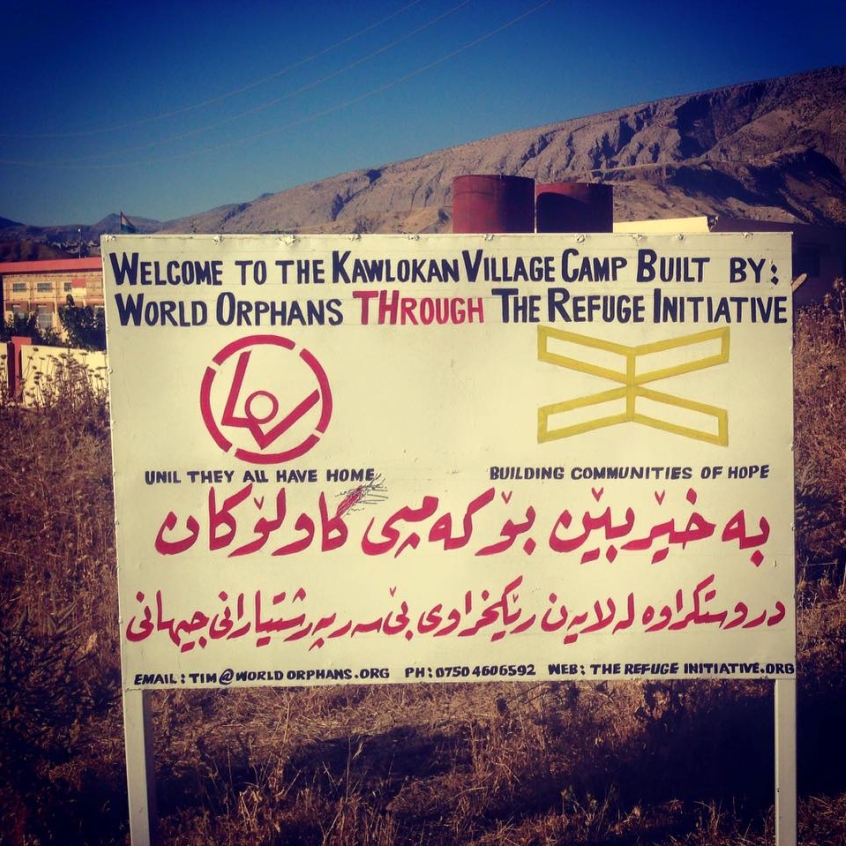In a town in the North-East of Kurdistan, Iraq, 150 km from ISIS-run Mosul, a group of Christians are pioneering a new model of of housing refugees, through village style, refugee-run micro-camps.

Billy Ray, originally from Florida, is co-founder of The Refuge Initiative. He has been living in North Iraq with his wife, Dawn, and three young sons since 2008.
He told Christian Today that after working in various areas, in 2010 they were invited to move to Soran – a Kurdish town 20 miles from the Turkish and Iranian borders – where they became the first western family to ever live in the region, according to a local resident.
The mayor "rolled out the red carpet for us", Ray said. He gave them land in the "Freedom martyrs quarter of Soran", where families who had lost members in recent civil conflicts lived, and asked them to work with the war-widows in the area.
They began building a community centre, called The Refuge, which provided vocational training, language classes, an event hall and outdoor playgrounds. Over the years their relationships and friendship with the local people and government grew.

In June 2015, ISIS took over the city of Mosul, just 150km away.
Ray and his family's reaction was not to flee, but rather, he said "we just naturally went back to the mayor and asked how we could help." He said he felt "God's grace to be here for such a time as this."
In his head, Ray had thought that he and his team from World Orphans would be able to shelter up to 20 families on the land they had been given.
The mayor asked if they could take exactly 20 Shabak Shia Muslims who had fled their village just days before ISIS attacked it. Having been "ratted out by some of their neighbours nearby", they had come to Soran, but had no money to pay rent or place to live.
"That very day, we had the bulldozer on our land," Ray said, and within nine days, he and his team had prepared a tented camp with water and electricity for the 120 people to move in to.
"That was the tip of the iceberg", he said. "There are hundreds of thousands of refugees out there and this was just 120 people."
Ray's despair at the "millions of refugees that are stuck in these UN industrialised camps, where people live in indignity, with no autonomy, dependent on the EU", inspired him and his team to develop the "micro-camp" initiative.
"We want to display a better way of doing refugee care through micro-villages", he said.
There are now five micro-camps providing refuge for around 700 Yazidi and Shabak refugees. These micro-villages house between 100-250 people, or 20-25 families, and are developed in partnership with the refugees themselves, seeking to both meet their needs and empower them. Through keeping families and communities together, these camps hope to enable community to continue, allowing a degree of self-governance and maintaining the normal village social structure.
The Refuge Initiative has involved, and often been led by, the mayor and local government, enabling a far greater level of integration between refugee camps and the city itself.
"All our camps but one are built on public land," Ray said. "We have basically created sub-divisions of the city that are hooked up to the main water and electrical grid. The men are allowed to work in the community enabling them to be basically independent, and with the government's help the refugees can get right back on their feet."
The vision for these camps is to create "genuine communities of hope", which includes developing pathways for refugees back in education, vocational training and work. The Refuge Centre that was built when the Rays moved to Soran is now being used as a school for the children living in the micro-camps.
Ray and The Refuge Initiative have a burden for "those languishing in the refugee camps across the Middle East", which become "recruitment grounds for ISIS."
"We've got to work to change the situation," he said. We need to "help government officials see that there is a better model" for refugee camps through the vision of micro-camps and see this model multiplied.













